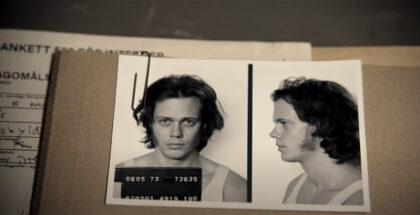Starve Acre review: An atmospheric folk horror
Review Overview
Cast
8Clarity
5Composition
8David Farnor | On 26, Oct 2024
Director: Daniel Kokotajlo
Cast: Matt Smith, Morfydd Clark, Erin Richards, Sean Gilder
Certificate: 15
“The dandelion has bud.” “Tell your son he can go now.” “I don’t really know what’s happening anymore.” These are all things you can expect to hear in Starve Acre. The slow-burn folk horror, based on Andrew Michael Hurley’s novel, is at once atmospheric and enigmatic, sometimes too much so.
Matt Smith and Morfydd Clark star as Richard and Juliette, who have moved out of town and into the countryside – specifically, to the titular farm owned by Richard’s late father. It’s a land that’s rooted in folklore, as well as unhappy childhood memories. Richard, an archaelogist by trade, finds himself excavating both after an incident involving their son, Owen (Arthur Shaw), which leads both parents to look for meaning and a future in the comforting whispers of the past.
Owen reveals early on that he’s been hearing whistling from Jack Grey, an old spirit whose name still lives on in local myth. Richard, at first, blames the influence of gruff neighbour Gordon (an understated, physically intimidating Sean Gilder), but grows to become obsessed with the mysterious figure and an ancient oak tree on his land. Juliette, meanwhile, also finds herself consumed by ethereal traditions as she seeks company beyond her concerned sister, Harrie (Erin Richards).
Matt Smith and Morfydd Clark are marvellous as the two lost souls. Smith underplays Richard’s grit and determination with pain internalised beneath a grubby heart and Clark – fresh from being a formiddable force in The Rings of Power – turns what could have been a sad tale of loneliness and isolation into a surprising, but no less unnerving, display of fortitude and commitment, as the pair stick together to rebuild their family life.
Director Daniel Kokotajlo – who impressed with his remarkable debut, the religious family drama Apostasy – pivots naturally into fictional horror here, as he again delves into the impact and power of belief. He brings a strikingly sparse quality to the genre, one that gives an earthy, documentary-like realism to the unnatural goings-on, right down a motif involving a hare that recalls 2021’s Lamb. Accompanied by Matthew Herbert’s groaning score and steeped in the brown smudge of the 1970s, the result is often more unsettling than moving, but no less haunting because of it. What an exciting and intriguing filmmaker Daniel Kokotajlo continues to be.


















